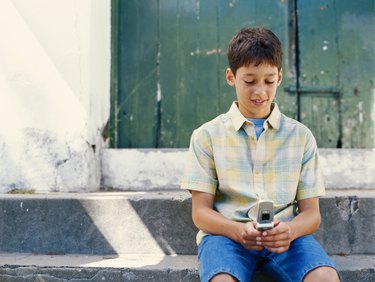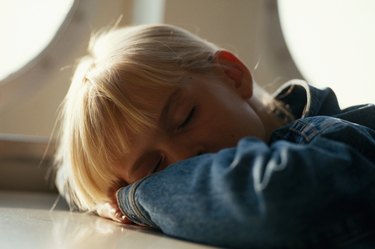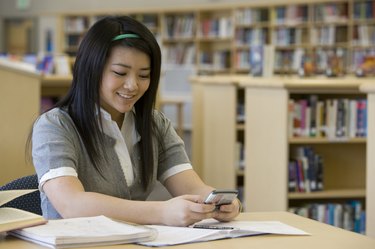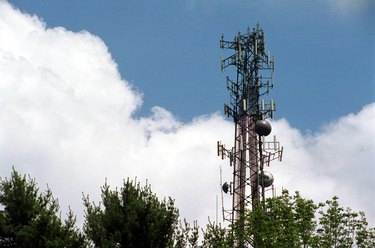
Society has come to a point where the idea of living without cell phones seems ludicrous. Students desire cell phones in order to sustain contact with friends. The parents of students want their children to have them for security purposes. Cell phones carry multiple benefits, but with this technology lies a dualism that teeters precariously between the benefits and negative effects of cell phone usage -- especially with students.
Negative Affects on Sleep

Gaby Badre, M.D., Ph.D., of Sahlgren's Academy in Gothenburg, Sweden conducted research on the affects of cell phone usage on sleep patterns in teens. The research focused on two groups: a control group of three men and seven women, juxtaposed by a variable group of three men and eight women. When the control group is compared against the variable group, Badre found that teens with excessive cell phone habits exhibit chronic restlessness, a reliance on stimulating drinks, difficulty falling asleep at night, disrupted sleep and an inclination toward fatigue and stress.
Video of the Day
Disruptive to School Environment

Children, teens and even young adults are prone to distraction with cell phones. In the classroom and out of school, cell phones provide students an instant network of communication and entertainment. Inside the classroom, students are distracted from the lessons to text, play games and, if they are very daring, call other people. Cell phone ringers, alarms and ring tones disrupt the flow of lessons and the attention of every student in the room and the teacher. According to the National School Safety and Security Services, text messaging can be an aid for cheating students. Also, the camera in a cell phone can be used to photograph exams. The camera also can be used to photograph other students in a way that is a violation of privacy.
Possible Dangers Posed to Children

In the case of school emergencies, cell phones can prove more of a hindrance than a help. Cell phones have been used to call in bomb threats. In many districts, tracking a cell phone is not easily done. Also, students' use of cell phones in a school emergency can possibly trigger a real bomb if an explosive device is on the school's property.
Cell phone usage by students during a school emergency can obstruct public safety personnel from controlling the event. Parents can be alerted to the emergency before public safety personnel have a chance to contain the situation. Parents can inadvertently increase the chaos by showing up at an imprudent time.
Cell phone systems are prone to overload during a real crisis. This has been proven during disasters like the World Trade Center attacks and the Columbine shootings. Several students using cell phones all at once can add to the overload and paralyze a system that may be needed by crisis teams, public safety personnel and school administrators. This may in turn magnify the crisis and increase the chance of tragedy.